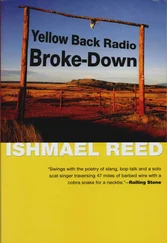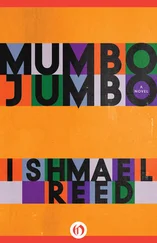Daniel Quinn
ISHMAEL
An Adventure of the Mind and Spirit
The first time I read the ad, I choked and cursed and spat and threw the paper to the floor. Since even this didn’t seem to be quite enough, I snatched it up, marched into the kitchen, and shoved it into the trash. While I was there, I made myself a little breakfast and gave myself some time to cool down. I ate and thought about something else entirely. That’s right.
Then I dug the paper out of the trash and turned back to the Personals section, just to see if the damn thing was still there and just the way I remembered it. It was.
TEACHER seeks pupil. Must have an earnest desire
to save the world. Apply in person.
An earnest desire to save the world! Oh, I liked that. That was rich indeed. An earnest desire to save the world—yes, that was splendid. By noon, two hundred mooncalfs, softheads, boobies, ninnyhammers, noodleheads, gawkies, and assorted oafs and thickwits would doubtless be lined up at the address given, ready to turn over all their worldlies for the rare privilege of sitting at the feet of some guru pregnant with the news that all will be well if everyone will just turn around and give his neighbor a big hug. You will wonder: Why is this man so indignant? So bitter? It’s a fair question. In fact, it’s a question I was asking myself.
The answer goes back to a time, a couple decades ago, when I’d had the silly notion that the thing I most wanted to do in the world was… to find a teacher. That’s right. I imagined I wanted a teacher—needed a teacher. To show me how one goes about doing something that might be called… saving the world.
Stupid, no? Childish. Naïve. Simple. Callow. Or just fundamentally dumb. In one so manifestly normal in other respects, it needs explaining.
It came about in this way.
During the children’s revolt of the sixties and seventies, I was just old enough to understand what these kids had in mind—they meant to turn the world upside down—and just young enough to believe they might actually succeed. It’s true. Every morning when I opened my eyes, I expected to see that the new era had begun, that the sky was a brighter blue and the grass a brighter green. I expected to hear laughter in the air and to see people dancing in the streets, and not just kids—everyone! I won’t apologize for my naïveté; you only have to listen to the songs to know that I wasn’t alone.
Then one day when I was in my mid–teens I woke up and realized that the new era was never going to begin. The revolt hadn’t been put down, it had just dwindled away into a fashion statement. Can I have been the only person in the world who was disillusioned by this? Bewildered by this? It seemed so. Everyone else seemed to be able to pass it off with a cynical grin that said, “Well, what did you really expect? There’s never been any more than this and never will be any more than this. Nobody’s out to save the world, because nobody gives a damn about the world, that was just a bunch of goofy kids talking. Get a job, make some money, work till you’re sixty, then move to Florida and die.”
I couldn’t shrug it away like this, and in my innocence I thought there had to be someone out there with an unknown wisdom who could dispel my disillusionment and bewilderment: a teacher.
Well, of course there wasn’t.
I didn’t want a guru or a kung fu master or a spiritual director. I didn’t want to become a sorcerer or learn the zen of archery or meditate or align my chakras or uncover past incarnations. Arts and disciplines of that kind are fundamentally selfish; they’re all designed to benefit the pupil—not the world. I was after something else entirely, but it wasn’t in the Yellow Pages or anywhere else that I could discover.
In Hermann Hesse’s The Journey to the East , we never find out what Leo’s awesome wisdom consists of. This is because Hesse couldn’t tell us what he himself didn’t know. He was like me—he just yearned for there to be someone in the world like Leo, someone with a secret knowledge and a wisdom beyond his own. In fact, of course, there is no secret knowledge; no one knows anything that can’t be found on a shelf in the public library. But I didn’t know that then.
So I looked. Silly as it sounds now, I looked. By comparison, going after the Grail would have made more sense. I won’t talk about it, it’s too embarrassing. I looked until I wised up. I stopped making a fool of myself, but something died inside of me—something that I’d always sort of liked and admired. In its place grew a scar—a tough spot but also a sore spot.
And now, years after I’d given up the search, here was some charlatan advertising in the newspaper for the very same young dreamer that I’d been fifteen years ago.
But this still doesn’t explain my outrage, does it?
Try this: You’ve been in love with someone for a decade—someone who barely knows you’re alive. You’ve done everything, tried everything to make this person see that you’re a valuable, estimable person, and that your love is worth something. Then one day you open up the paper and glance at the Personals column, and there you see that your loved one has placed an ad… seeking someone worthwhile to love and be loved by.
Oh, I know it’s not exactly the same. Why should I have expected this unknown teacher to have contacted me instead of advertising for a pupil? Contrariwise, if this teacher was a charlatan, as I assumed, why would I have wanted him to contact me?
Let it go. I was being irrational. It happens, it’s allowed.
I had to go down there, of course—had to satisfy myself that it was just another scam. You understand. Thirty seconds would do it, a single look, ten words out of his mouth. Then I’d know. Then I could go home and forget about it.
When I got there, I was surprised to find it was a very ordinary sort of office building, full of second–rate flacks, lawyers, dentists, travel agents, a chiropractor, and a private investigator or two. I’d expected something a little more atmospheric—a brown–stone with paneled walls, high ceilings, and shuttered windows, perhaps. I was looking for Room 105, and I found it in the back, where a window would overlook the alley. The door was uninformative. I pushed it open and stepped into a large, empty room. This uncommon space had been created by knocking down interior partitions, the marks of which could still be seen on the bare hardwood floor.
That was my first impression: emptiness. The second was olfactory; the place reeked of the circus—no, not the circus, the menagerie: unmistakable but not unpleasant. I looked around. The room was not entirely empty. Against the wall at the left stood a small bookcase containing thirty or forty volumes, mainly on history, prehistory, and anthropology. A lone overstuffed chair stood in the middle, facing away, toward the wall at the right, and looking like something the movers had left behind. Doubtless this was reserved for the master; his pupils would kneel or crouch on mats arranged in a semicircle at his knee.
And where were these pupils, who I had predicted would be present by the hundreds? Had they perhaps come and been led away like the children of Hamelin? A film of dust lay undisturbed on the floor to disprove this fancy.
There was something odd about the room, but it took me another look round to figure out what it was. In the wall opposite the door stood two tall casement windows admitting a feeble light from the alley; the wall to the left, common with the office next door, was blank. The wall to the right was pierced by a very large plate–glass window, but this was plainly not a window to the outside world, for it admitted no light at all; it was a window into an adjacent room, even dimmer than the one I occupied. I wondered what object of piety was displayed there, safely beyond the touch of inquisitive hands. Was it some embalmed Yeti or Bigfoot, made of cat fur and papier–mâché? Was it the body of a UFOnaut cut down by a National Guardsman before he could deliver his sublime message from the stars (“We are brothers. Be nice.”)?
Читать дальше
Конец ознакомительного отрывка
Купить книгу












